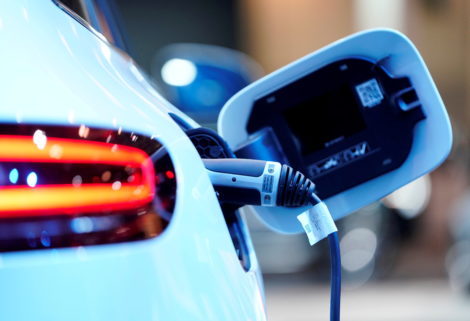PCAPI urges swift integration of electric vehicles; highlights health benefits for Filipinos

File photo of an electric vehicle being charged. REUTERS/Mark Blinch/File Photo
MANILA, Philippines — Stressing the long-term health benefits for Filipinos, the Pollution Control Association of the Philippines Inc. (PCAPI) is advocating for the expedited provision of incentives necessary to mainstream electric vehicles (EVs).
PCAPI Vice President for External Affairs Jeremiah Dwight Sebastian emphasized that EVs can provide Filipinos with “reduced air pollution, fewer illnesses, and decreased hospital visits.”
This is attributed to the zero tailpipe emissions of EVs, which contribute to lower carbon emissions and carbon footprints compared to fuel-powered cars.
“Electric vehicles are a critical technology in advancing decarbonization efforts, as they offer a more flexible energy source option… they can also mitigate what I believe is a significant pollution issue in highly urbanized communities,” Sebastian stated.
According to the Statista Research Department, the transport sector in the Philippines emitted 31.54 million metric tons of carbon dioxide in 2021.
Transitioning to EVs, as highlighted by the American Lung Association, can save 110,000 lives, prevent 2.7 million childhood asthma attacks, and yield over $1.7 trillion in global climate benefits in the United States alone.
The shift to EVs is one of the measures the government is implementing to decarbonize the Philippines and mitigate the impacts of climate change.
Earlier this year, the Philippine government issued Executive Order No. 12 series of 2023, aiming to promote the widespread use of EVs in the country, while also targeting a reduction in carbon emissions caused by fossil fuel-powered vehicles.
Various types of EVs have received tax breaks, with the exception of e-motorcycles, which are still subject to a 30% import duty. This has drawn criticism from stakeholders in the EV industry, who are calling for a revision of this policy.
“Only a more affluent segment of the population can afford to purchase four-wheel vehicles and thus benefit from these incentives… This is why the government must make these tax incentives more inclusive,” emphasized Felix Jose Vitangcol, Secretary General of Philippine Business for Environmental Stewardship.
Motorcycles constitute the majority of vehicles on the road in the country, with over 7.81 million registered motorcycles in 2022, according to a study by the Statista Research Department.
The Department of Energy (DOE) aims to deploy 2,454,200 EVs, including cars, tricycles, motorcycles, and buses, along with 65,000 charging stations nationwide by 2028.
By revising EO12 to encompass e-motorcycles, the country’s full transition to electric vehicles is expected to gain momentum.
RELATED STORY:
Subic Freeport going ‘green,’ ready for thriving e-vehicle industry